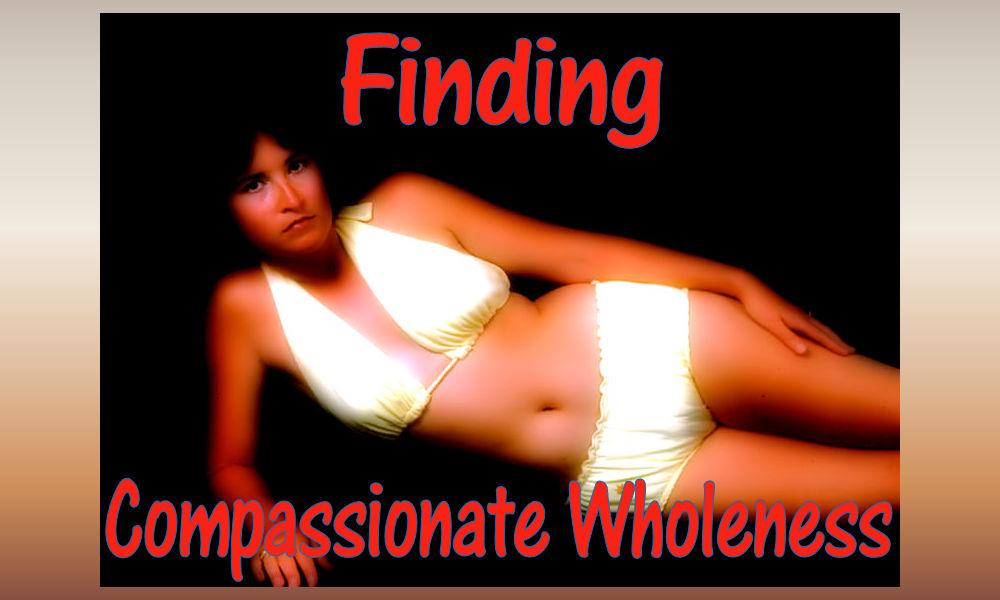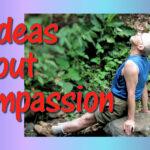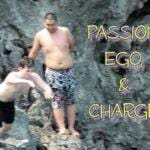Compassionate wholeness happens infrequently in our world, because of the downward pull toward security and safety — things valued by our tribes and cultures.
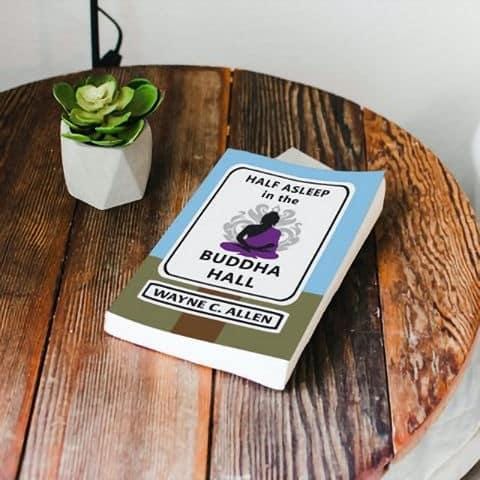
Looking for more on this topic?
Check out my book,
Half Asleep in the Buddha Hall.
My “Eastern” book takes you by the hand and helps you to find peace of mind.
Half Asleep in the Buddha Hall is a Zen-based guide to living life fully and deeply.
(Here’s a direct Amazon link)
Purchase digital versions (Apple, Nook, Kobo, etc.) from this page
In Zen and in psychotherapy, there are what could be called “levels of advancement” or levels of understanding. And beyond this, there are “levels of behaviour” — after all, an un-lived understanding is next to useless.
The crossover points — the new understandings — are gates –
semi-elastic barriers to movement.
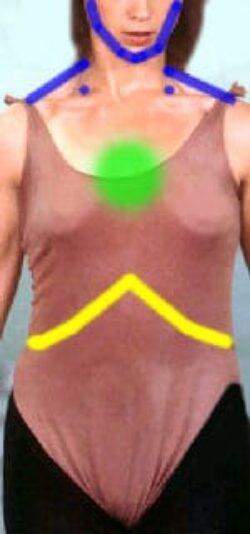
The first gate, (yellow) is located at the physical diaphragm, stands at the place where we move from physical, daily, security concerns, relationships, and self esteem material, into the heart.
The heart zone (green) is about open-heartedness — about compassion — which transforms the passion of the 2nd Chakra into self-less energy.
You might think of true compassion as the strength to “stand with,” without interfering, while supporting.
As an illustration, I did my chaplaincy training at Sick Kids’ Hospital in Toronto, and “stood with” a couple whose child was brain-dead.
I spent many hours with them, listening to their pain, and fantasies, and terror.
They asked me to be there with them, as their daughter was unplugged from life support.
For me enacted compassion was:
- 1) no platitudes, no dumb lines about “god’s will,”
- 2) simple presence, which looks like being solid, being ‘right there,’ and
- 3) making physical contact, and not flinching from the full extent of their grief.
Compassion is “fully being with, without attempting to rescue.”
Compassion, however, is not the end of our the walk into wholeness, but rather the meeting-place of the physical and the heart.
In Chinese medicine, it’s the meeting place of Earth and Heaven chi. It’s the balance point, and also is the midway point on the journey into full self-hood.
The second gate is at the shoulders and jaw.
This gate, when “locked,” blocks us from fully expressing who we are and what is up for us.
I think of this as biting off the “words” of our essential nature, as we repress the compassionate and passionate expression of being. Additionally, this gate keeps us from perfecting our sense of intuition and insight, and blocks our imbibing in the “sea of chi” that surrounds us.

The mechanism for this repression? The fear of being exposed.
Without flogging the horse, it’s powered by the weight of our earliest training – to fit in, to not make waves, to be a “good boy or good girl.” It’s fueled by, “What will the neighbours think?” It’s maintained by not wanting to look silly or stand out.
That’s the framework.
I once worked with a client who expressed anger over things happening in her family. We looped around that for a bit, and I decided to veer off.
I said, “What was the last thing you did that was completely about your self-growth — that was about your passion for life?”
She grinned, and said, “Besides counselling and Bodywork?”
I thanked her for the complement, and said, “Yeah, besides that.”
She looked sad. “It’s been years. Maybe I should try to be that woman again.”
I replied, “There is no ‘should,’ and you can’t, because you are not her. However, starting now, you could choose to enact more and more of you, and do that until you die.”
This particular client always went home and did what she says she’s going to do, (my definition of integrity, as opposed to talking a good show and then repeating the same old stuff…)
The other thing she did was really let herself go during Bodywork.
Many people won’t do that.
They resist feeling and expressing, because they were told, when they were kids, to keep the noise and emotions down. So, they grit their teeth, and barely make a peep. There is tightness is across their jaws, and across their shoulders.
If you’ve been reading my stuff for long, you know the import I give to Bodywork and to letting the sounds, the blocked stuff, out.
The only way through the second gate is the actual expression of the “stuff” inside — and this requires “using your words,” acting with integrity (acting is the only way of showing who you are) and emphatically being willing to let sounds out.
I think that it is impossible to move through the gates we’re talking about without some form of regular Bodywork, and, of course, counselling. The habits of the past are so ingrained that metaphoric dynamite is necessary to break through.
Most people I see are grimly clamped down. Others have smiles on their faces, but the smile looks forced and a bit grim. They talk about feeling well, and getting their act together, but something rings hollow.
The problem is that they are trying to shift perspectives — paradigms — without rocking any boats
—they still want to fit in, while pussyfooting around. They learn to talk a good show—to be optimistic, and use positive language, but the sense I get is of a slightly recalcitrant child trying to do what they want without offending their parents.
I think of the kind of transformation I’m discussing here as a complete transformation of body, mind and spirit.
In a sense, it’s a leap. The odd thing I see is people trying to leap without letting go of “this side of the leap.” Or trying to leap with a backpack of things strapped on their backs—family rules, family members, old, mouldy beliefs, etc.
- Most don’t even try the leap—they just run at the gap and then fall down before they, well, fall down.
- Others plunge into the abyss, backpack tightly gripped.
- A few leap, and end up spread-eagled, with one foot on one side, one foot on the other. You know that one’s gotta hurt.
Getting to the other side requires the dropping of all of your pre-conceived notions.
You sort of land on the other side in a heap, and then have to make sense of the new terrain.
- On the other side, the old rules no longer apply.
- On the other side, there is freedom of self-expression. You choose how and what to do, based upon you and your skill set, as opposed to what others expect you to do.
- On the other side, the expectations of others seem to be exactly that- the expectations of others - and therefore their issue, not yours.
The leap is worth the effort, but it’s such an unknown quantity as to freeze most in place.
Yet, the passion and the fire that burns in your belly, even if you are unaware of it, is what the world needs and craves. And, it’s the only way to be yourself, as opposed to a caricature drawn by others.
I can’t believe I have it in me…
